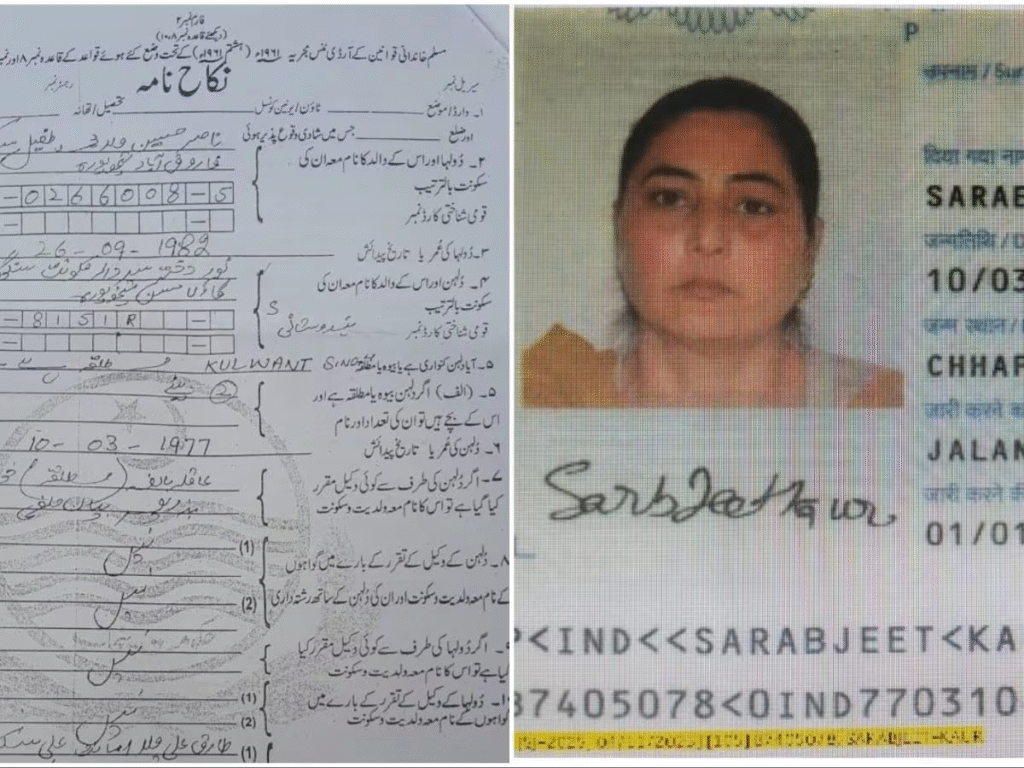AI Generated Summary
- In a striking escalation of a personal saga with national security undertones, former Pakistani Punjab Assembly member Sardar Mahinderpal Singh, a prominent Sikh leader, has petitioned the Lahore High Court for the arrest and immediate deportation of Indian Sikh woman Sarabjit Kaur.
- Arriving in Pakistan on November 4, 2025, via the Wagah border as part of a 2,000-strong pilgrimage group for Guru Nanak’s birth anniversary at Nankana Sahib, Kaur vanished from the approved itinerary the same day.
- Sarabjit Kaur, 52, a resident of Kapurthala in Punjab, and other Sikh pilgrims crossed the Wagah-Attari border to enter Pakistan on November 4 under a bilateral deal facilitating visits to religious shrines.
In a striking escalation of a personal saga with national security undertones, former Pakistani Punjab Assembly member Sardar Mahinderpal Singh, a prominent Sikh leader, has petitioned the Lahore High Court for the arrest and immediate deportation of Indian Sikh woman Sarabjit Kaur. Arriving in Pakistan on November 4, 2025, via the Wagah border as part of a 2,000-strong pilgrimage group for Guru Nanak’s birth anniversary at Nankana Sahib, Kaur vanished from the approved itinerary the same day. She married local Muslim Nasir Hussain in Sheikhupura, converted to Islam—taking the name Noor—and now seeks Pakistani nationality, flouting her single-entry pilgrim visa terms.
Singh’s petition, filed through Advocate Ali Changezi Sandhu, names Pakistan’s federal government, the Interior Ministry, the Federal Investigation Agency, and the Evacuee Trust Property Board (ETPB) as respondents. He alleges that Kaur deliberately deviated from pilgrimage routes, overstayed her visa after November 13, when the group returned to India, and poses a security risk given her purported criminal cases in India, which were inexplicably cleared by Indian authorities for travel. Singh claims intense pressure from Pakistani agencies, including ETPB, to act, framing her stay as a national security breach amid India-Pakistan frictions.
Personal Choice or Security Threat?
Singh says that “love marriages” often mask espionage or radicalization plots, especially with pilgrims’ visa lapses. No extradition treaty exists between India and Pakistan, complicating any Indian push for her return, as noted by Shiromani Gurdwara Parbandhak Committee (SGPC) legal advisors. Akal Takht’s interim jathedar had anticipated her repatriation based on Pakistan Sikh committee assurances, but Lahore’s judiciary granted her a stay instead. This echoes recurring patterns: Indian pilgrims vanishing during visits, only to resurface converted and wed, fueling suspicions in an era of heightened border vigilance post-2025 skirmishes.
Sarabjit Kaur, 52, a resident of Kapurthala in Punjab, and other Sikh pilgrims crossed the Wagah-Attari border to enter Pakistan on November 4 under a bilateral deal facilitating visits to religious shrines. The Prakash Parv this year marked the 555th birth anniversary of Guru Nanak Dev. The group of 1,992 Sikh pilgrims returned to India on November 13 after spending around 10 days in Pakistan. Kaur wasn’t with them.

A ‘nikahnama‘ (an Islamic wedding contract) in Urdu had later surfaced, stating that Kaur had married Nasir Hussain, a resident of Sheikhupura, about 56 km from Lahore. She had converted to Islam and changed her name to Noor before her marriage.




